Ever wondered about the complexities of Metabolic Syndrome, a looming global health issue?
In early July, Chung Wah Community Care (Chung Wah CC) invited the Royal Perth Hospital Medical Research Foundation to host a health talk entitled "Understanding the Dangers of High Blood Pressure and Metabolic Syndrome" at the Balcatta Community Hub. The keynote speaker was Dr Omar Azzam, Nephrologist.
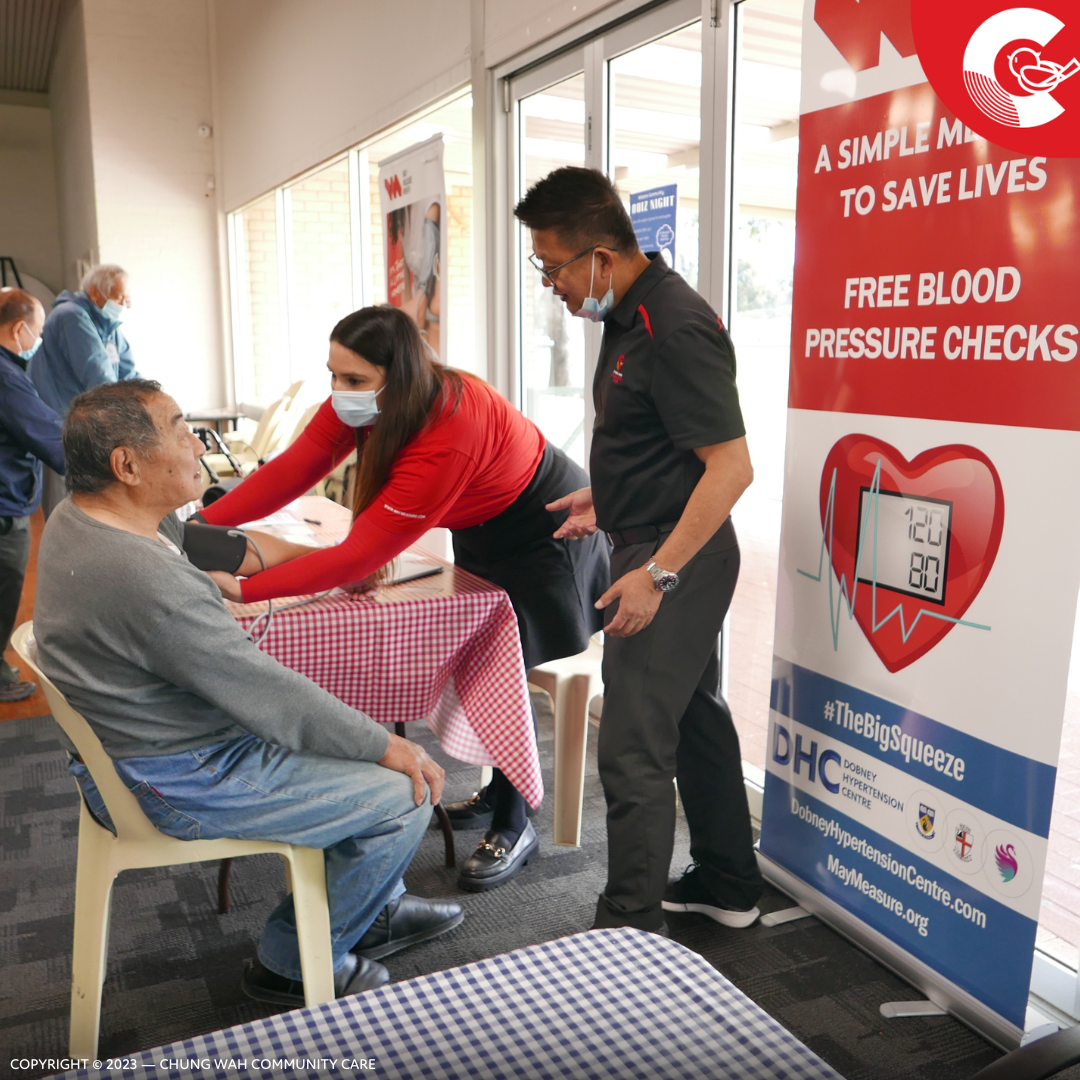
In the latter part of the talk, Dr Azzam proposed that Metabolic Syndrome is the world's next health challenge. Metabolic Syndrome is not a disease but a set of risk factors that increase the chances of developing heart disease, stroke, vascular disease of the kidneys, and Type 2 Diabetes. The syndrome includes visceral obesity, hypertension, insulin resistance, high triglycerides, and low HDL cholesterol.
The speaker further emphasised the issue of obesity. Obesity is a bodily state where excessive body fat accumulates and negatively impacts health. It can lead to complications such as cardiovascular diseases, Type 2 Diabetes, obstructive sleep apnea, certain cancers, osteoarthritis, and depression. The causes of obesity generally include overeating, lack of exercise, and genetic factors. Obesity is commonly defined by the Body Mass Index (BMI), calculated by dividing weight (kg) by the square of the height (m). Western standards consider a BMI above 30 as obese and between 25-30 as overweight. However, for Asians, a BMI above 27 is considered obese and between 24-27 as overweight. For instance, an Asian person who is 1.65m tall and weighs 85kg would have a BMI exceeding 31, classifying them as obese.
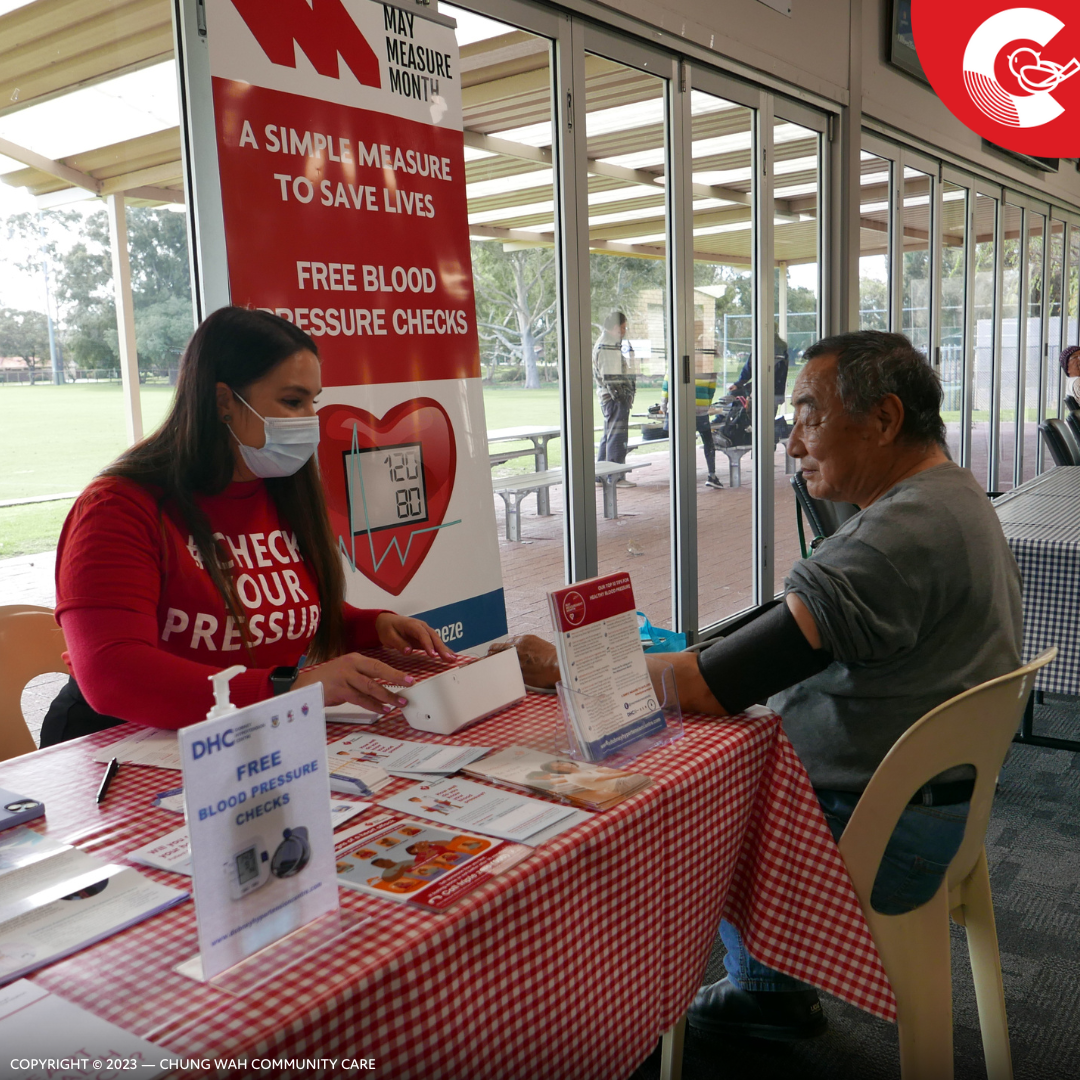
According to data from the Australian Bureau of Statistics (ABS) from 2018, over 80% of men aged 65-74 and over 70% of women in the same age group were overweight or obese. By 2025, it is estimated that 38.3% of Australian men and 36.4% of Australian women will be overweight, with 35.3% of men and 31% of women being classified as obese. Australia's obesity problem is concerning. Treatments for obesity include behavioural therapy, pharmacotherapy, and surgery. Behavioural therapy mainly aims at weight reduction through dietary changes, restructuring of nutritional habits, and exercise. Dietary control includes low-fat, low-carbohydrate, low glycaemic index, and low-calorie diets. Quitting smoking and drinking can also assist in treatment. Medications primarily used are phentermine, orlistat, and metformin. General weight loss surgeries include gastric banding, Roux-en-Y gastric bypass (RYGB), and sleeve gastrectomy.
In conclusion, Dr Azzam's medical advice was, "A healthy lifestyle is the best, cheapest, and most effective approach to preventing and treating hypertension and metabolic syndrome". The seniors who attended this health talk found it highly beneficial and showed their appreciation with warm applause.
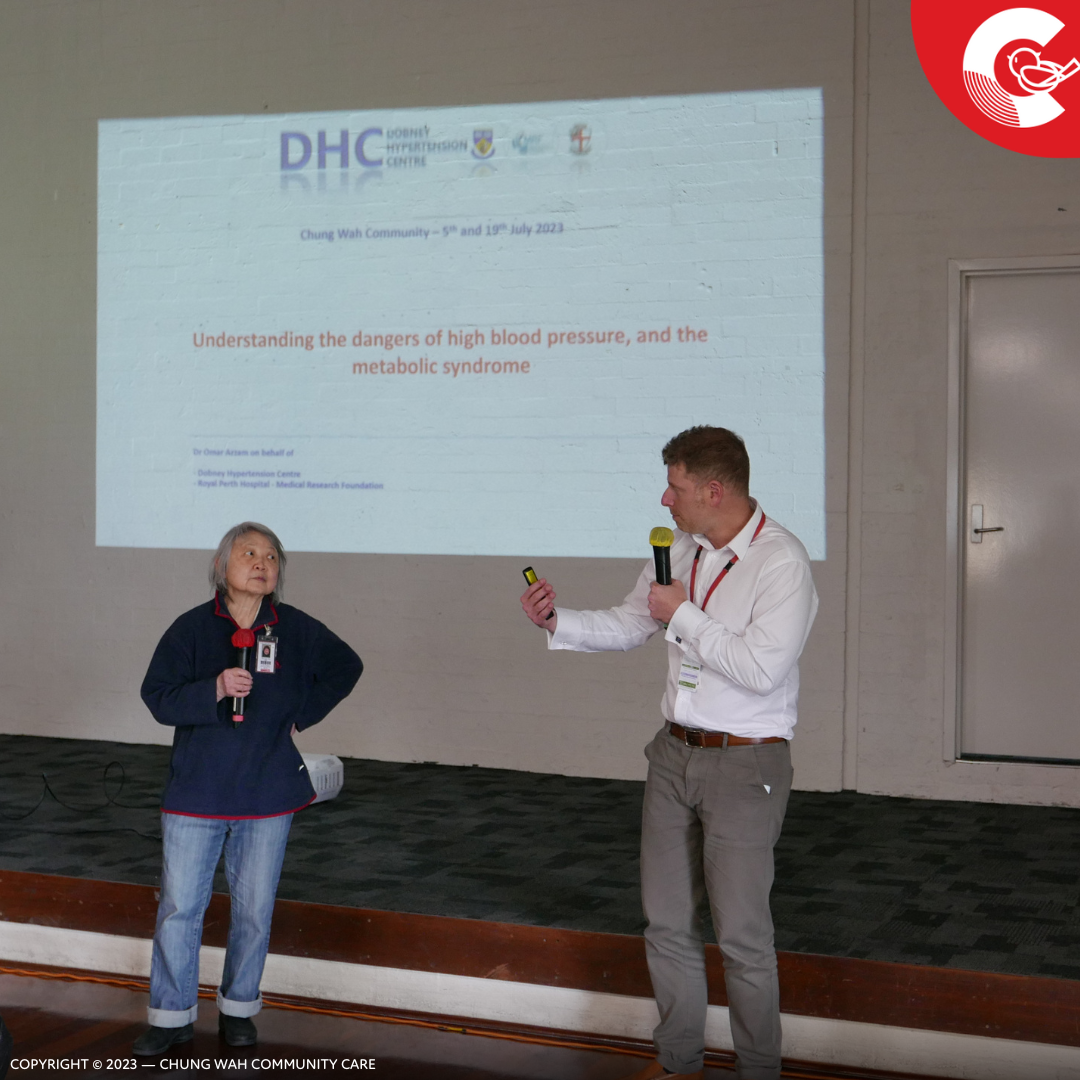
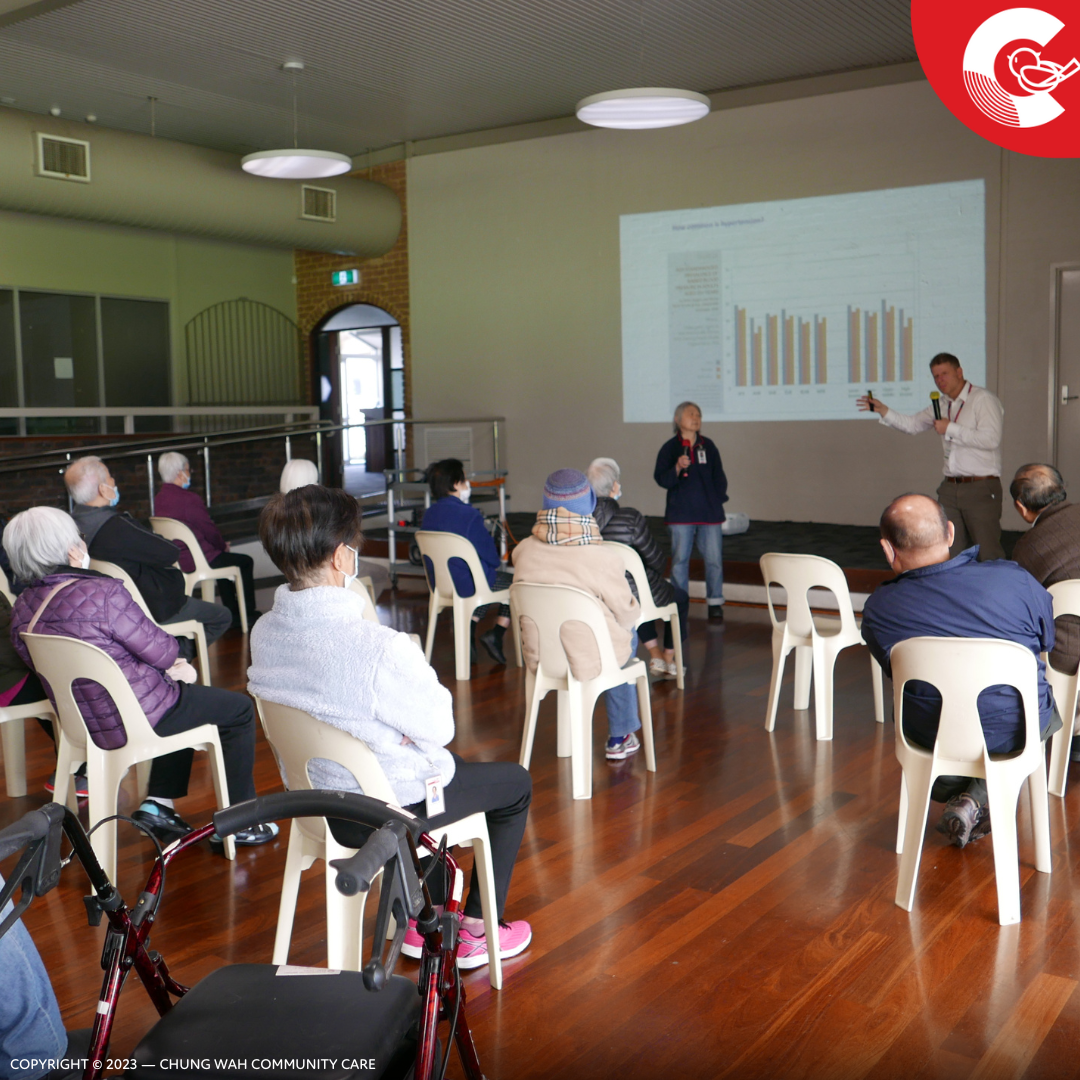
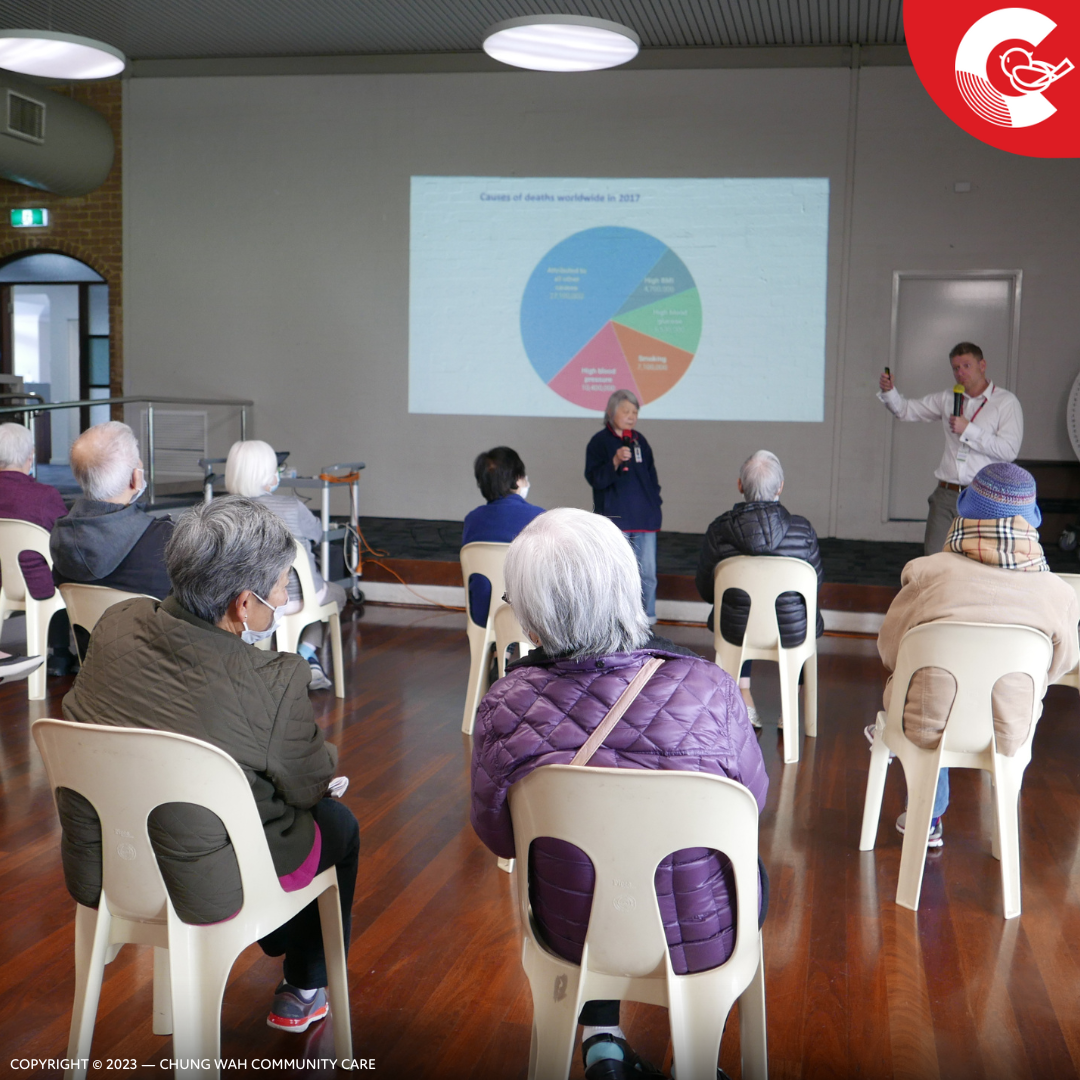
Chung Wah has been servicing the WA community since 1909, dedicated to improving the quality of life of individuals from diverse backgrounds. Moreover, Chung Wah CC has over 35 years of professional care experience helping seniors and people with disability improve their well-being and better integrate into the community. In 2023, we're promoting our theme, "Embrace, Elevate & Flourish", and build a better community for all.





